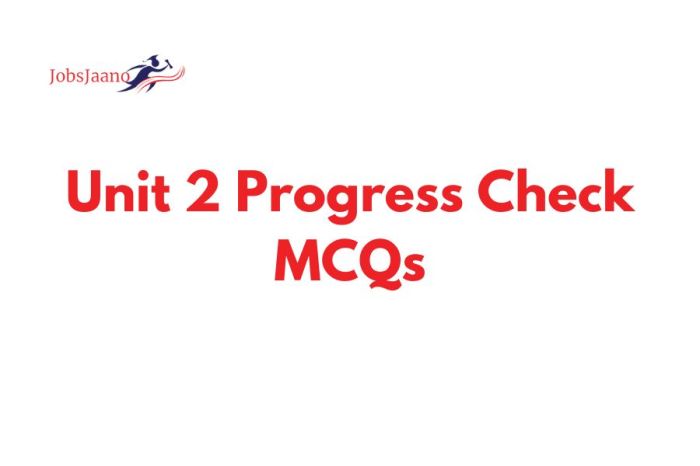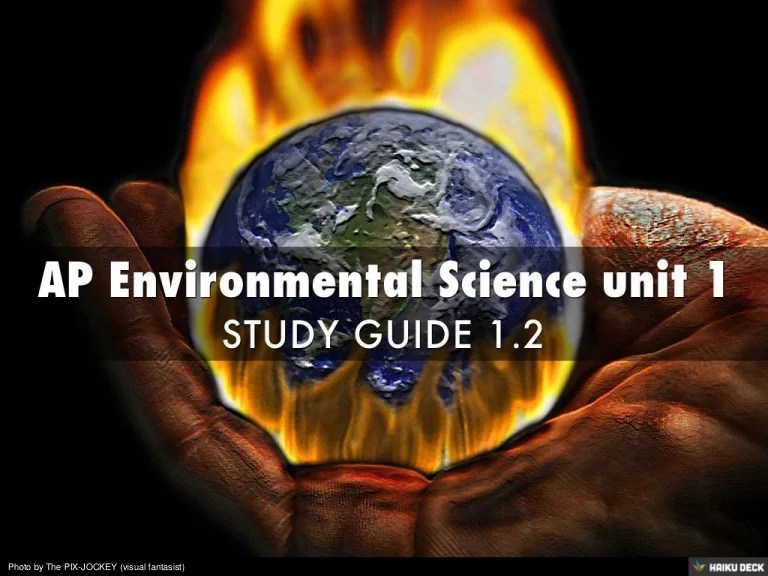Embark on an exploration of the AP Environmental Science Unit 1 Progress Check MCQ, a comprehensive assessment designed to gauge your grasp of fundamental environmental concepts. Delving into the intricacies of environmental systems, sustainability, human population dynamics, natural resources, pollution control, climate change, and biodiversity, this MCQ serves as a valuable tool for self-evaluation and academic advancement.
AP Environmental Science Unit 1 Progress Check MCQ Overview

The AP Environmental Science Unit 1 Progress Check MCQ is designed to assess students’ understanding of the foundational concepts covered in the first unit of the AP Environmental Science course. The MCQ consists of multiple-choice questions that test students’ knowledge of environmental systems, sustainability, human population growth, natural resources, pollution, climate change, and biodiversity.
The MCQ is divided into several sections, each covering a specific topic. The questions range in difficulty from basic recall to more complex application and analysis. Students are expected to demonstrate their understanding of the key concepts, theories, and principles related to each topic.
Format and Question Types, Ap environmental science unit 1 progress check mcq
The AP Environmental Science Unit 1 Progress Check MCQ is typically administered online and consists of around 30-40 multiple-choice questions. The questions may include:
- Multiple-choice questions with four or five answer choices
- True/False questions
- Short-answer questions
Environmental Systems and Sustainability
Environmental systems refer to the complex interactions between the Earth’s physical, chemical, and biological components. These systems include the atmosphere, hydrosphere, geosphere, and biosphere, which interact with each other to sustain life on Earth.
Sustainability is a concept that emphasizes the need to meet the needs of the present without compromising the ability of future generations to meet their own needs. It involves balancing economic development, social equity, and environmental protection to ensure a sustainable future.
Key Indicators and Metrics of Environmental Sustainability
- Air quality
- Water quality
- Soil quality
- Biodiversity
- Climate change
- Resource consumption
The Human Population and the Environment
Human population growth has had a significant impact on the environment. The increasing population has led to increased resource consumption, pollution, and deforestation. The challenge lies in meeting the needs of a growing population while minimizing environmental degradation.
Strategies for Achieving Sustainable Population Growth
- Family planning and education
- Improved access to healthcare
- Economic development
- Education and empowerment of women
Natural Resources and Conservation
Natural resources are essential for human survival and well-being. They include renewable resources, such as water and forests, and non-renewable resources, such as fossil fuels and minerals.
Conservation is the practice of managing natural resources to ensure their availability for future generations. It involves protecting habitats, reducing pollution, and promoting sustainable practices.
Role of Technology in Natural Resource Management
- Monitoring and tracking resources
- Developing sustainable extraction methods
- Promoting alternative energy sources
Pollution and Its Control
Pollution refers to the introduction of harmful substances into the environment. It can be caused by human activities, such as industrial processes, transportation, and agriculture, or by natural events, such as volcanic eruptions.
Pollution can have severe impacts on human health, ecosystems, and the economy. Control measures include reducing emissions, treating wastewater, and promoting sustainable practices.
Strategies and Technologies for Pollution Control
- Emission control devices
- Wastewater treatment plants
- Renewable energy sources
Climate Change and Its Impacts

Climate change refers to the long-term changes in the Earth’s climate system. It is primarily caused by the release of greenhouse gases into the atmosphere, which trap heat and lead to global warming.
Climate change has significant impacts on ecosystems, human societies, and the economy. These impacts include rising sea levels, extreme weather events, and changes in agricultural productivity.
Strategies and Technologies for Mitigating and Adapting to Climate Change
- Reducing greenhouse gas emissions
- Developing renewable energy sources
- Improving energy efficiency
- Building seawalls and levees
Biodiversity and Conservation: Ap Environmental Science Unit 1 Progress Check Mcq

Biodiversity refers to the variety of life on Earth, including the different species, ecosystems, and genetic diversity within species. Biodiversity is essential for the functioning of ecosystems and provides numerous benefits to humans, such as food, medicine, and recreation.
Biodiversity is threatened by habitat loss, pollution, climate change, and overexploitation. Conservation efforts focus on protecting habitats, restoring degraded ecosystems, and raising awareness about the importance of biodiversity.
Role of Protected Areas in Biodiversity Conservation
- Provide safe havens for species
- Maintain genetic diversity
- Support ecosystem services
Key Questions Answered
What is the purpose of the AP Environmental Science Unit 1 Progress Check MCQ?
The MCQ serves as a diagnostic tool to assess students’ understanding of key concepts covered in Unit 1 of the AP Environmental Science curriculum.
What types of questions are included in the MCQ?
The MCQ encompasses a variety of question types, including multiple choice, true/false, and short answer questions, designed to evaluate students’ knowledge, comprehension, and critical thinking skills.
How can I prepare for the AP Environmental Science Unit 1 Progress Check MCQ?
Effective preparation involves thoroughly reviewing the Unit 1 course material, engaging in practice questions, and seeking clarification on any challenging concepts.